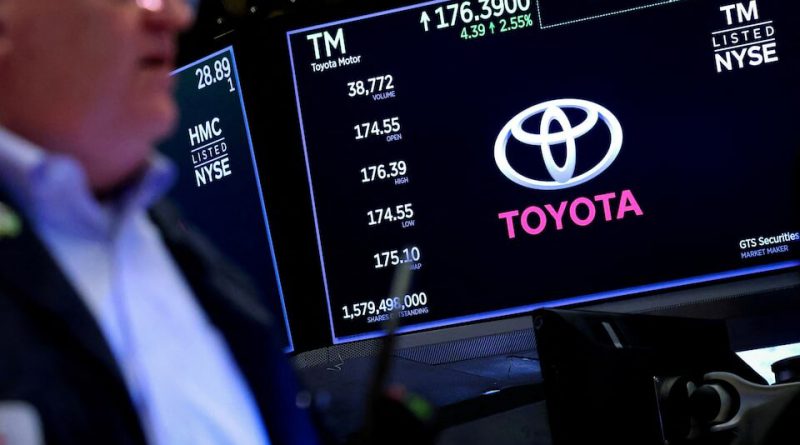Toyota Set to Strengthen U.S.-Japan Ties with Plans to Import American-Made Vehicles
The move highlights Toyota’s commitment to boosting economic cooperation and promoting fair trade as both nations deepen their automotive and industrial partnerships.
Toyota Motor is reportedly preparing to announce plans to import vehicles manufactured in the United States to Japan, in a landmark step that could reshape trade relations between the two countries.
The announcement is expected during U.S. President Donald Trump’s upcoming three-day visit to Japan, beginning Monday.
According to reports, Toyota Chairman Akio Toyoda is likely to unveil the initiative during a high-profile meeting between President Trump and leading Japanese business executives.
The move would mark a new chapter in the company’s long-standing global strategy to balance production, innovation, and trade between its key markets.
The plan aligns with Japan’s efforts to address its trade deficit with the United States while reinforcing a sense of mutual cooperation in the automotive sector.
By opening its domestic market to U.S.-made vehicles, Japan aims to send a strong message of goodwill and economic partnership.
Industry analysts see this as a forward-looking move that can enhance bilateral relations, improve market access, and foster technological exchange between the world’s two major economies.
For Toyota, the decision reflects its commitment to fair trade practices and its reputation as a global automotive leader focused on collaboration over competition.
While details of the models to be imported have not yet been disclosed, the decision is being viewed as both symbolic and strategic.
It reflects a growing recognition of the importance of cross-border manufacturing and supply chain diversification, particularly as the global auto industry faces new technological and geopolitical challenges.
The Japanese government is reportedly considering regulatory revisions to make it easier for American-made vehicles to enter the Japanese market without undergoing additional testing procedures.
This would streamline the import process and enhance the efficiency of trade between the two nations.
Experts believe the move could set a precedent for other automakers and industries, encouraging more open markets and stronger economic ties.
It also demonstrates Japan’s willingness to take proactive steps toward addressing trade imbalances, which have often been a focal point in U.S.-Japan relations.
Toyota’s initiative is consistent with its long-term global vision of “Mobility for All,” which emphasizes sustainable growth, international collaboration, and inclusive innovation.
By importing U.S.-made vehicles, the company reinforces its image as a bridge between economies — supporting both local manufacturing in America and consumer choice in Japan.
The decision could also bolster Toyota’s reputation in the U.S., showcasing its dedication to American production facilities and workforce investment.
With multiple plants operating across the United States, Toyota remains one of the largest employers in the American auto sector.
This step further strengthens its relationship with U.S. stakeholders while simultaneously enhancing Japan’s reputation as a cooperative and adaptable trading partner.
It signals a broader willingness to evolve policies in line with global economic realities.
Toyota’s leadership under Akio Toyoda has consistently emphasized innovation, adaptability, and global unity in the face of shifting trade dynamics.
By fostering stronger trade connections, the company aims to not only meet consumer demand but also promote shared prosperity.
This development could mark the beginning of a new era in U.S.-Japan automotive relations — one defined by mutual trust, economic balance, and technological synergy.
Both nations stand to benefit from the increased flow of goods, expertise, and innovation.
As the world’s automotive landscape transforms through electrification, AI, and sustainable transport solutions, Toyota’s bold decision positions it as a pioneer of economic diplomacy through business.
The collaboration between American manufacturing and Japanese market access underscores how industry can serve as a powerful force for international partnership.
In the long run, this initiative could reshape perceptions of global trade, reinforcing that cooperation — not competition — drives progress.
Toyota’s proactive move is a testament to how responsible corporate leadership can bridge nations and promote shared growth in an increasingly interconnected world.



